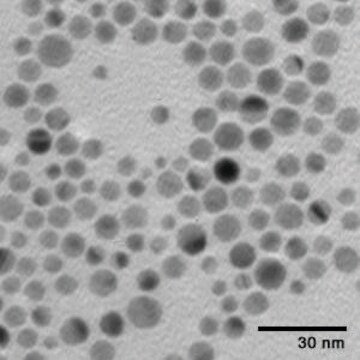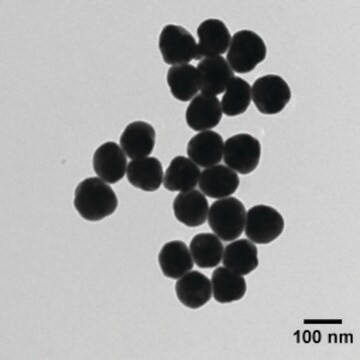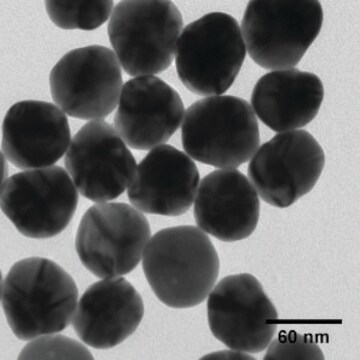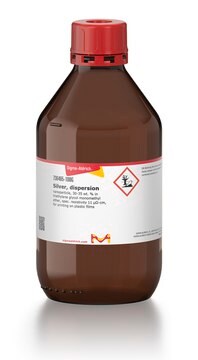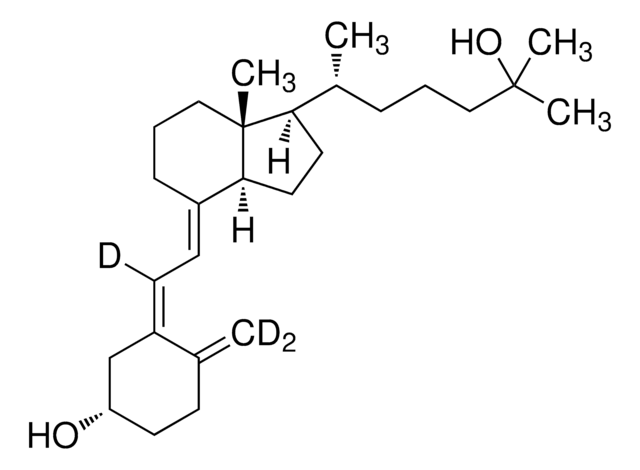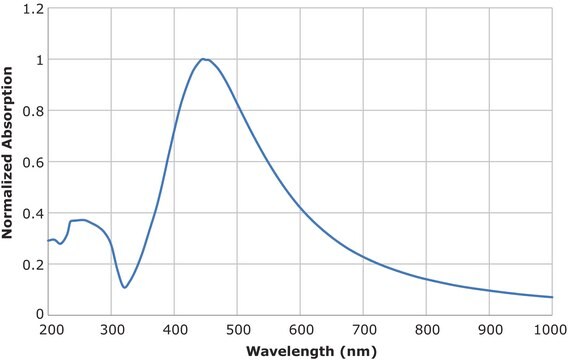730807
Silver, dispersion
nanoparticles, 40 nm particle size (TEM), 0.02 mg/mL in aqueous buffer, contains sodium citrate as stabilizer
Synonym(s):
Colloidal silver
About This Item
Recommended Products
form
nanoparticles
Quality Level
contains
sodium citrate as stabilizer
concentration
0.02 mg/mL in aqueous buffer
refractive index
n20/D 1.333
particle size
40 nm (TEM)
density
0.990 g/mL at 25 °C
fluorescence
λem 412 nm FWHM 63 nm
storage temp.
2-8°C
SMILES string
[Ag]
InChI
1S/Ag
InChI key
BQCADISMDOOEFD-UHFFFAOYSA-N
Looking for similar products? Visit Product Comparison Guide
Related Categories
General description
Application
- Silver as acrolein hydrogenation catalyst: intricate effects of catalyst nature and reactant partial pressures.: This study explores the use of silver as a catalyst for acrolein hydrogenation, highlighting the complex effects of catalyst nature and the partial pressures of reactants, which could inform future applications in industrial chemical processes (Bron et al., 2007).
- Surface-enhanced Raman analysis of sulfa drugs on colloidal silver dispersion.: This research discusses the application of surface-enhanced Raman spectroscopy (SERS) using colloidal silver dispersions for analyzing sulfa drugs, potentially enhancing detection methods in pharmaceutical research (Sutherland et al., 1990).
signalword
Warning
hcodes
pcodes
Hazard Classifications
Aquatic Acute 1 - Aquatic Chronic 1
Storage Class
12 - Non Combustible Liquids
wgk_germany
WGK 3
flash_point_f
Not applicable
flash_point_c
Not applicable
Choose from one of the most recent versions:
Already Own This Product?
Find documentation for the products that you have recently purchased in the Document Library.
Articles
A key challenge for nanomaterial safety assessment is the ability to handle the large number of newly engineered nanomaterials (ENMs), including developing cost-effective methods that can be used for hazard screening.
Silver nanomaterials have unique physical, chemical, and optical properties that are currently being leveraged for a wide variety of biological applications.
Nanostructured Materials Through Ultrasonic Spray Pyrolysis
Advances in materials have often been led by the development of new synthetic methods that provide control over size, morphology and structure. The preparation of materials in a scalable and continuous manner is critical when development moves beyond lab-scale quantities.
Our team of scientists has experience in all areas of research including Life Science, Material Science, Chemical Synthesis, Chromatography, Analytical and many others.
Contact Technical Service
